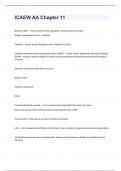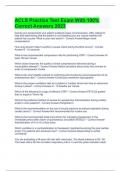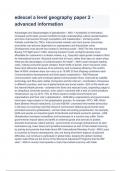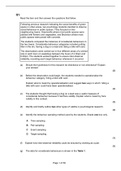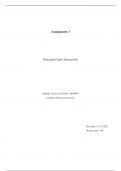prenatal or birth challenges fared in different environments. What are the implications of
these results for the nature‒nurture question?
2. The text describes several reasons for the importance of studying child development.
Why is studying child development of interest or importance to you personally?
3. Considering the long history on the issue of playing violent video games and child and
adolescent aggression, what advice would you provide to parents?
4. Choose two of the following philosophers: Aristotle, Locke, Plato, and Rousseau and
describe one similarity and one difference between the two.
5. What do developmental psychologists mean when they say that children play an active
role in their own development? Provide a detailed example of this concept.
6. Explain what effortful attention is and describe its components. What has been
associated with difficulty in exerting effortful attention?
7. Explain how changes in sociocultural factors are demonstrated with childcare outside of
the home in the United States.
8. Explain the characteristics of children who demonstrate resilience, as in Werner's study.
9. Katie and Natasha are sisters. Natasha has a lot of friends and is well liked by her peers.
Katie, in contrast, has few friends and is constantly the target of her peers' teasing.
Using the four factors Scarr identified as involved in differences among siblings,
describe why these sisters might be so different when it comes to their peer relations.
For each of the four factors, provide a specific example.
10. A researcher is interested in the impact of a new type of training diaper on the age at
which toddlers become potty trained. The researcher plans to split a group of 100
toddlers into two groups—in one group, members will wear the new training diapers
until they are potty trained, and in the other, members will wear their usual diapers.
Answer these questions about this study: (1) What is the researcher's hypothesis? (2)
How should the researcher split the 100 toddlers into two groups? (3) Which group is
the experimental group, and which is the control group? (4) What is the independent
Page 1
, variable? (5) What is the dependent variable? (6) What results will the researcher need
to make a conclusion about the effectiveness of the new training diaper? (7) Will the
researcher be able to conclude that there is a cause-and-effect association? Why or why
not?
11. Describe one advantage and one disadvantage of each of these designs: (a) cross-
sectional, (b) longitudinal, and (c) microgenetic.
12. Describe what ethical issues researchers must consider when they are conducting
research with children.
Page 2
, Answer Key
1. Werner found that children who experienced prenatal or birth challenges were more
likely to develop difficulties. However, the development of these difficulties as well as
the degree to the development of the difficulties was dependent on the child's home
environment. Specific environmental influences included parents' income, education,
mental health, and parental relationships. For instance, by the age of 2, toddlers who
lived in middle-income families did not experience complications associated with
prenatal or birth challenges. Also, by 10 years of age, prenatal and birth challenges were
related to psychological problems if the child was growing up in poor conditions. Those
who experienced prenatal and birth challenges along with environmental challenges
were more likely to develop serious learning and behavior problems by 10 years of age
and by the age of 18 had already been arrested, experienced mental health problems, or
even become a parent. However, roughly 33% of those who experienced prenatal or
birth challenges and environmental challenges showed signed of resilience.
The results of Werner's work lend support for the implication of nature and nurture
interaction to produce developmental outcomes. Nature and nurture work together to
shape development. To assume that one is more important than the other, or even that
the two are of equal importance, oversimplifies the developmental process and does not
accurately reflect the bidirectional interaction of the two on development.
2. Answers will vary but should discuss on the relevance of studying child development to
one or more of the following: (1) raising children, (2) developing and choosing social
policies, and (3) developing an understanding of human nature.
3. Even though the issue of playing violent video games and childhood and adolescent
aggression has been contested by politicians, advocacy groups, and researchers for a
considerable amount of time, more recent research indicates a minimal effect of playing
violent video games and childhood and adolescent aggression. However, a minimal
effect is not the same as a nonexistent relationship between the two. Considering this,
advice regarding this issue to parents may be to monitor what their children are playing,
to engage and play the game with their child, or to limit unmonitored exposure. Also,
recent meta-analysis results indicate that playing violent video games is not a major
cause of aggression. This means that other factors at play.
4. Answers will vary based on the two philosophers chosen. However, some common
similarities and differences among them are as follows. Both Plato and Aristotle were
Greek philosophers who lived in the fourth century B.C. and were interested in how
children's development was influenced by their nature and the nurture they received.
Also, both Plato and Aristotle believed that the long-term welfare of society was
dependent on the proper raising of children. Plato viewed the raising of boys as a
difficult challenge for caregivers. Plato viewed self-control and discipline as the major
goal of education. Aristotle, on the other hand, was concerned with fitting child rearing
to the needs of each child. Additionally, Plato believed that children have innate
knowledge while Aristotle believed that all knowledge comes from experience and that
the infant mind is blank.
Like Aristotle, Locke, an English philosopher, viewed the child as a blank slate, or
Page 3

